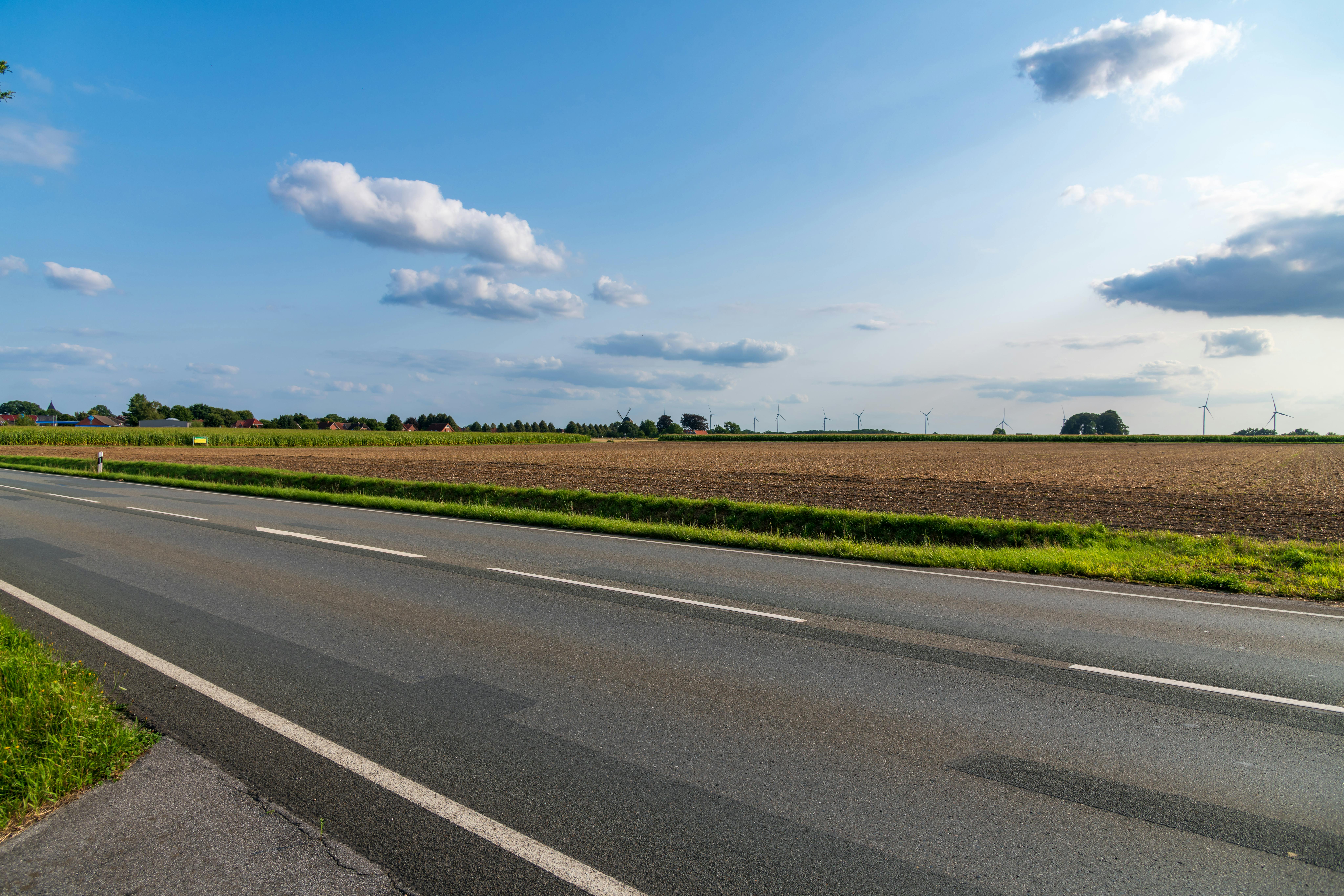Sustainable Travel Tips 2025: Eco-Friendly Ways to Explore the World
Ever found yourself staring at a pristine beach, wondering if your presence helps or harms the place you’ve come to admire? I sure have. Last December, while hiking in Costa Rica, I paused mid-trail—caught between awe for the thundering waterfall and a gnawing worry about my carbon footprint. Truth is, the real travel dilemma these days isn’t about where to go, but how to go: how to choose journeys that leave a lighter environmental mark and a deeper, more respectful connection with local communities. If you feel that tug, welcome—this guide is built for travelers like us, hungry for authentic experiences and determined to preserve the very magic we chase.
Why Sustainable Travel Matters in 2025
Let’s jump right in. Post-pandemic, the travel industry’s rebound isn’t just about pent-up wanderlust; it’s about rethinking our impact. According to the World Tourism Organization, nearly 1.5 billion international tourist arrivals were recorded pre-COVID1. After the disruptions of 2020-2023, one thing is clear: Responsible travel must be non-negotiable. Did you know that tourism accounts for roughly 8% of global greenhouse gas emissions?2 That fact alone got me re-evaluating every flight I booked last year.
Here’s where things get personal. In my experience, travelers want to do the right thing—but information overload (and patchy standards) makes it maddeningly hard. I’ve made plenty of mistakes: once, thinking reusable water bottles were enough, then realizing my travel toiletries came wrapped in single-use plastics. Actually, let me clarify that: No single gesture is magic. Real sustainability is layered, complex, and—yes—sometimes inconvenient. But the payoff? It’s massive. Super, super worth it.
Core Principles of Eco-Friendly Travel
So, what does “sustainable travel” even mean in practice? Here’s how I currently explain it to clients and friends:
- Environmental Responsibility: Reduce emissions, conserve water, minimize waste, protect biodiversity.
- Community Benefit: Support local economies, respect cultural heritage, promote fair labor and ethical practices.
- Self-Awareness: Make conscious choices about transport, accommodation, dining, and activities.
Nowadays, travel choices go way beyond “pack light.” You have to dig deep: ask if your hotel uses renewable energy, if your tours employ guides hired and trained locally, how your spending is distributed—a fact many travelers forget. Ever notice how “green-washing” is everywhere? That’s why, more than ever, travelers must learn to spot the difference between honest efforts and empty marketing3.
Key Insight: Progress, Not Perfection
Here’s the thing: Nobody gets it right all the time. Mistakes are inevitable. What matters most is being willing to evolve—question, adapt, and learn. Small steps add up. Choose one new habit each trip, then build from there. I used to think big, dramatic changes were the answer, but consistent small improvements actually move the needle.
What’s New for Sustainable Travel?
As of 2025, several exciting shifts are shaping how conscious travelers operate. Tech-forward booking tools now calculate a trip’s carbon footprint before you hit “book”4. Airlines increasingly offer genuine sustainable aviation fuel options. Local governments—like those in New Zealand and Portugal—support visitors who engage in community conservation projects5. This brings up another point: Sustainable travel isn’t just about consuming less; it’s about contributing more. So, how does one actually start making a difference, easily, right now?
Easy Actions for Every Traveler
Over the past year, I’ve fielded dozens of emails from clients and friends asking for practical, “doable” eco-friendly steps. Honestly, theory doesn’t get us far—what people really need is a punchy list of quick wins. So, whether you’re planning a family vacation or a solo digital nomad stint, here’s my refined cheat sheet for sustainable travel (no guilt, just progress):
- Opt for Trains or Buses Over Planes—Especially for short distances. You’ll usually cut your per-mile emissions by at least half6. Easy to forget, but profoundly effective.
- Pack Smart. Bring reusable water bottles, mesh produce bags, and a collapsible tote. I used to neglect this—until that “aha” moment in Vietnam when a simple cloth bag saved me from a tsunami of plastic at the local market.
- Book Local, Independent Accommodations. Skip big chains when possible; boutique hotels, eco-lodges, and home-stay rentals send more money back into the community7.
- Eat Regionally and Seasonally. Choose farm-to-table or market-sourced food; you’ll taste the place and bypass the shipping footprint.
- Support Ethical Tours. Check for certifications (like B Corp or Rainforest Alliance), read authentic reviews, and favor guides who live in—and love—their locale.
- Respect Local Customs. Before you go, learn a few phrases, master local etiquette, and dress appropriately. Sounds simple, but it’s a powerful way to build genuine connection and minimize awkward faux pas.
Call to Action: Choose One Habit
Pause here and consider: What’s one easy swap you could commit to on your next trip? Start with food choices, maybe, or opt for a train instead of a short-haul flight. Over time, these become second nature—and it’s honestly fun tracking your own improvement.
Real Benefits for Local Communities
Crucially, sustainable travel isn’t just about greening your itinerary—it’s about ensuring the places we visit genuinely benefit. According to recent regional studies8, communities that receive respectful, low-impact tourism often see higher employment rates, better preservation of culture, and a stronger sense of belonging. What really struck me, chatting with a Portuguese dive operator last spring, was how their survival hinged on year-round bookings—not peak-season surges. One mistake I made in the past? Overlooking off-season opportunities. Turns out, they’re often far gentler on the environment 9.
- Book locally-owned restaurants, avoid global fast-food chains.
- Seek out community-run craft markets, not mass-produced souvenir shops.
- Participate in volunteer programs that respect local needs, not “voluntourist” photo ops.
- Ask about fair wages and community-based tours before joining any activity.
A colleague recently pointed out that true travel should foster two-way enrichment—the visitor grows, the destination flourishes. I’ve seen firsthand how authentic engagement shifts the tone: Instead of taking, you’re sharing, building lasting ties. Honestly, I reckon this is the future.
Country Fact: Costa Rica’s Green Revolution
Did you know Costa Rica generates more than 99% of its electricity from renewable sources10? Their tourism industry is a global gold standard for responsible travel, thanks to decades of government investment in conservation and authentic ecotourism. When I visited last winter, every local guide seemed to balance environmental knowledge with genuine community pride—a blend that left a deep impression. Even coffee farms run educational tours on organic and sustainable growing. If you want a template for planet-friendly journeys, look here first.
Practical Sustainable Travel Checklist
Ask yourself: What’s the easiest way to get started without overwhelm? I’ve developed this go-to table for myself and clients, built from years of trial, error, and learning.
| Step | Action | Why It Matters | Tips for Success |
|---|---|---|---|
| 1 | Book Green Transport | Cuts personal carbon footprint; supports investment in clean transit | Compare rail/bus options with carbon calculators |
| 2 | Stay Eco-Certified | Ensures energy/water savings; incentivizes ethical owner practices | Look for Green Key/LEED/B Corp listings |
| 3 | Eat Local | Invests in community agriculture; prevents shipment pollution | Use Yelp/TripAdvisor for food sourcing info |
| 4 | Minimize Waste | Reduces landfill and ocean plastic; models better habits | Bring reusables; recycle wherever possible |
The more I consider this, the easier it gets. What started as an overwhelming, guilt-filled exercise now feels like an empowering, continuous journey. Let that sink in for a moment—and start small.

A Deep Dive Into Responsible Travel Choices
I’m still learning about the wider effects of individual travel decisions—a process marked by honest re-evaluation. One thing I used to overlook? Supply chains. Now, I spend as much time researching the origins of my hotel linens as I do the hike views. Sound obsessive? Maybe. But after reading the EU’s 2024 Responsible Tourism Report11, it’s clear: Small choices compound across thousands of travelers.
That brings me to something most people wonder: Can my small swap actually make a difference? Conference conversations reveal that the answer is a resounding “yes, but only collectively.” According to academic reviews12, the ripple effects of sustainable decisions in popular destinations can reshape local economies. The jury’s still out on some methods (e.g., carbon offsets), but direct investments—like community solar projects and eco-education programs—demonstrate measurable improvements13.
Questions Every Traveler Should Ask
Before I book anything these days, I ask myself a few honest questions—ones I wish someone had shared with me earlier:
- How did I choose this destination? Was it for its beauty, culture, or social media “trendiness”?
- Are local ecosystems under threat? What’s being done to protect them?
- Does my spending support local families, businesses, or only foreign corporations?
- Will my visit respect, ignore, or challenge local customs?
- How can I reduce my environmental impact with easy swaps?
What fascinates me most: Once you start interrogating your own motivations, every journey becomes more meaningful. But I’m getting sidetracked. Moving on to a key element—ethical certifications.
Understanding Certifications and Standards
Let me clarify: Not all “eco-labels” are created equal. You’ll see hundreds of terms—green, sustainable, ethical, regenerative—but how do you know which ones matter? During my early career, I made the mistake of trusting logos without doing the research. Now, I lean heavily on globally recognized certifications:
- Rainforest Alliance
- Green Key
- TourCert
- B Corporation
Expert interviews suggest looking for regular audits, transparent governance, and published impact reports. If you’re unsure, ask questions or look for consumer advocacy bodies—these days, social media amplifies both genuine achievements and green-washing, making fact-checking easier but also more confusing14.
Key Takeaway: Stay Curious, Stay Critical
I’ll be completely honest—sometimes I get overwhelmed cross-checking certifications and standards. What helps? Joining traveler forums, reading travel blogs, and pooling knowledge from fellow explorers. A learning evolution, really.
Myths and Misconceptions
Let’s debunk a few persistent myths I hear at industry meetups and workshops:
- Myth 1: “Eco travel is expensive.” Not always true—community-based options are often cheaper and bring richer experiences15.
- Myth 2: “Sustainable travel requires expert knowledge.” In reality, most tips are intuitive and learnable.
- Myth 3: “Only big gestures count.” The truth is, small consistent choices drive the biggest change.
Funny thing is, I still get tripped up by these, too—my thinking has evolved from skepticism to advocacy as I learn more. The more you engage, the easier it gets to spot what works and what’s noise.
Share Your Progress
Conclusion: Your Roadmap to Greener, More Authentic Journeys
At this point in time, the future of travel hangs in the balance. Honestly, I’m not entirely convinced we’ll ever perfect the art of sustainable tourism—but I’m optimistic that today’s travelers are more motivated, resourceful, and caring than ever before. The best journeys have always been those that reward curiosity, self-correction, humility, and a genuine desire to connect. From my perspective, embracing sustainability isn’t just a practical choice; it’s an emotional one, built on respect for people and places alike.
As someone who started as a tourist—wowed by landscapes, oblivious to impact—and evolved into an advocate for responsible travel, I want to leave you with this: Sustainable travel is a continuous conversation. It’s okay to stumble, revisit assumptions, and change your approach. Staying authentically curious, learning from mistakes, and connecting with fellow travelers isn’t just the right way forward—it’s a rewarding way to experience the world.
Professional Call-to-Action
Next time you plan a trip, choose one new sustainable action—and share what you learn. Join online forums, spark conversations, and challenge companies to raise their game. Your impact, however small, multiplies when it becomes visible and collective.
Looking ahead, expect continued innovation: from AI-powered carbon calculators to immersive local experiences that redefine what “authentic” travel means. The key, by and large, is committed progress—so keep moving, keep questioning, and keep traveling smart.
References



